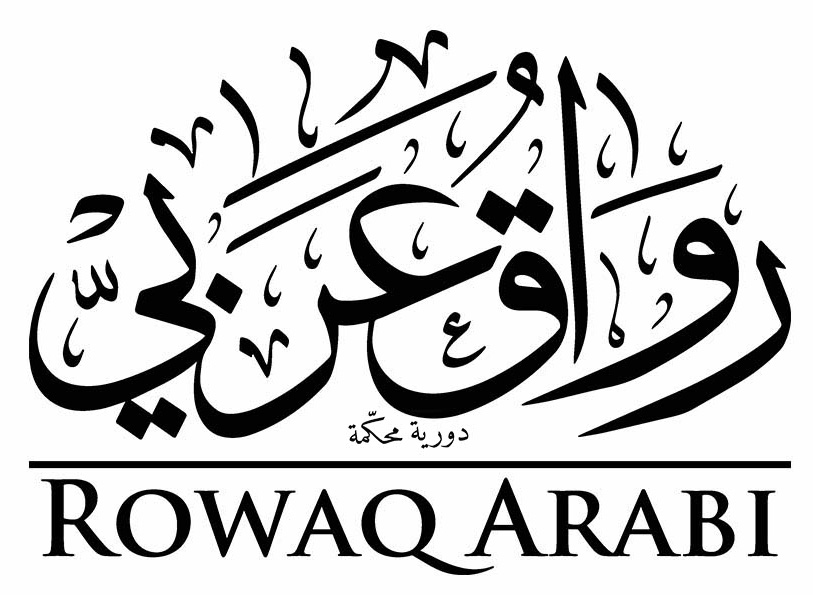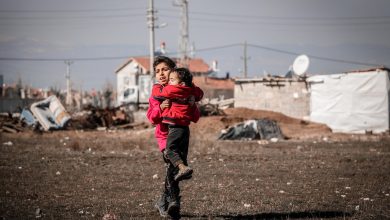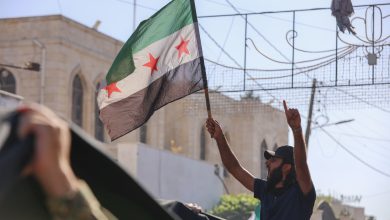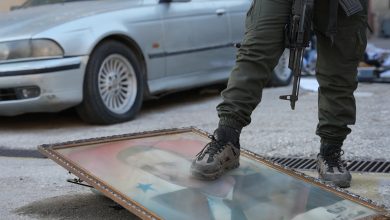Views: The Human Rights Movement in Syria between Challenge and Hope
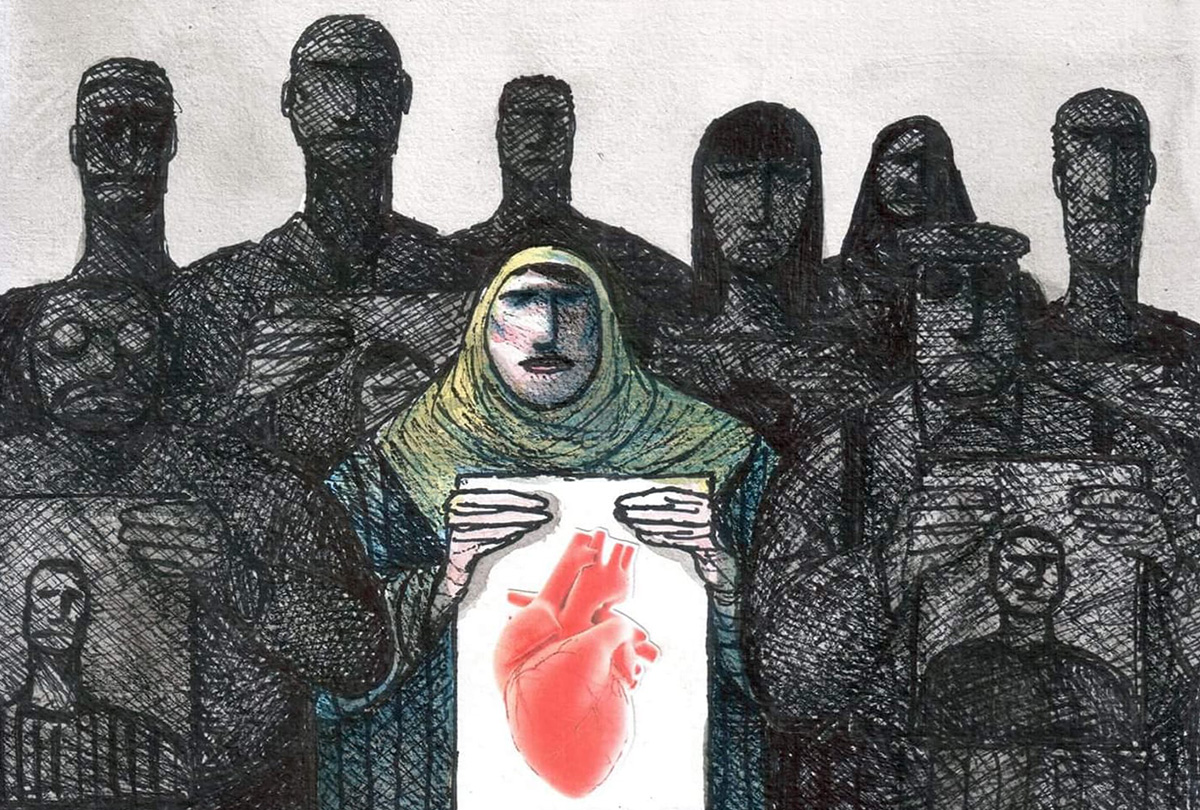
[1]Historical background
The human rights movement in Syria is still in the embryonic phase. Its first breakthrough came in July 1962 with the founding of the Human Rights Defense League. Although the league was pioneering, its activities were extremely limited and it soon disappeared without a trace. In the 1970s, the Lawyers Syndicate formed committees dedicated to human rights. In March 1978, several lawyers drafted a petition demanding a syndicate board meeting to discuss issues of civil liberties and human rights[2] ; the petition was supported by about one-quarter of the general assembly of Damascus lawyers. The Lawyers Syndicate was soon brought to heel, however, amid a wave of conflicts between the regime and professional syndicates that ended with most syndicate leaders in prison. The authorities exploited the fear of the Islamist movement, then represented by the Muslim Brotherhood. The wave of repression culminated in the massacre in Hama in 1982, in which thousands of civilians were killed and the city partially leveled.
The rights movement in Syria was not explicitly organized as such until the last few years because of successive dictatorships and varying degrees of repression since 1958, which saw the union between Syria and Egypt and the establishment of the general intelligence service. Given the durability of the “securitocracy,”[3] which lasted from the 1970 coup until the transfer of rule to Bashar al-Assad in 2000, the conditions necessary for the growth and development of the human rights movement were nonexistent. Talk of human rights was perceived to weaken the resolve of the nation and occasioned the cruelest forms of punishment under the long-standing state of emergency. Thus, the movement is still in its infancy, although decades have passed since its inception.
In this rights desert, the Committees in Defense of Democratic Freedoms and Human Rights were formed in 1989, directly influenced by the movements for democratic change in the Eastern Bloc and endeavoring to launch the modern movement for human rights. In other words, a political event was the foundational motivation, giving the committees a political as well as a rights dimension. This combination has had ramifications for the rights movement to this day. The political rhetoric of the committees’ founders landed them in prison in December 1991, after the committees issued a statement criticizing the lack of transparency and the reelection of Hafez al-Assad. After Bashar al-Assad assumed the presidency in July 2000, some hope returned to rights circles. Various organizations and associations were formed, although none of them were officially licensed.
It is fair to say that the human rights movement in Syria did not take clear shape until 2011 with the beginning of the peaceful Syrian uprising, which gave birth to peaceful, popular protests in which masses of young people went out to decry tyranny and demand democratic change. Before the militarization of the landscape and before Syria turned into a battlefield—with the indirect and direct help of regional and international forces—a few Syrian organizations working in exile came to the forefront, along with several groups that had failed to obtain official licenses in the period of the so-called “modernization and development” project led by Bashar al-Assad. This project accelerated arbitrary economic liberalization while restricting any political or rights-based openness in society. Liberalization cleared further space for the spread of organized corruption, exacerbating class gaps. The 2011 protests thus drew a huge number of middle-class individuals who had been impoverished, as well as working-class people who had received only crumbs from what was ostensibly a socialist system. Many Syrians participating in the protests had paid a high price for the transition to capitalism or, more precisely, capitalism for the state elite.
Since 2011, the Syrian regime has sought to deploy the sanitized language of human rights, bringing in some figures to form government-organized non-governmental organizations (GONGOs), and using these organizations as a regime mouthpiece in the rights arena. In the first decade of Bashar al-Assad’s inherited rule, the regime tightened its grip on the civil landscape, sensing, under pressure from Western donors, the need to open up civil society while keeping it under strict security control. Through the Syria Trust for Development, established in 2007, the regime was able to attract most of the funding designated for civil society through partnership agreements and the implementation of the 1995 Barcelona Declaration. At the time, it was impossible for the Syria Trust for Development to involve itself in advocacy, and its work was limited to various development activities.
Nevertheless, times have changed, and the state is expected to adopt a new method of controlling advocacy and rights work, as clearly evidenced by the formation of the Syrian Human Rights Federation in 2013.[4] Most human rights activists surveyed believe the federation—which has engaged in no real activity save the issuance of a few statements—enjoys the acceptance and patronage of the Syrian authorities. The literature of the Syrian rights movement has engaged in no systematic description or assessment of the federation’s activity, which puts this accusation in the realm of speculation or a political stance.
For all practical purposes, the activities of most Syrian organizations – either those founded without permits in an earlier period or those established at the beginning of the popular movement – take place outside Syrian territory. These organizations rely on clandestine networks in areas under regime control, and wholly or relatively clandestine networks in areas under the control of various militias, whether moderate Islamic, extremist gangs, or de facto Kurdish forces.
Major challenges facing the human rights movement in Syria
Professional advocacy culture
Since the tools for learning about human rights and their separation from politics or ideological positions is lacking in Syria, the rights movement emerged in an unhealthy environment dominated by authoritarianism and repression. Any sort of rights activity was prohibited for at least five decades amid varying levels of repression and rigidity. Human rights culture was absent from Syrian society, seeming like a foreign language with no meaning for Syrians. In addition, the rights movement was influenced by the wider ideological conflicts on the local and regional political landscape, generally ideologies that were not democratic in theory and practice; from the far left, to once-Baathist and now anti-Baath Arab nationalists, to various types of Islamists, principally Muslim Brothers. These existing political forces had an adverse impact on rights work, distancing it from the founding principles of professional neutrality and a non-ideological commitment to rights and principles based on the promotion of liberties. At the same time, some political parties and forces attracted people working in rights advocacy, which stripped rights work of some credibility, despite their good intentions.
In this climate, most rights organizations are unable to truly span geographic areas and ethnic and sectarian barriers. The performance of these organizations’ staff and members is likely to carry the residue of various other commitments; this is in addition to the weak human rights culture, the absence of professionalism, and the influence of political and religious beliefs on general orientation and performance. Observing the performance of rights organizations shows that the way work is carried out, especially in documenting violations, is regrettably politicized to varying degrees. This has nothing to do with bad intentions, but is rather the inevitable result of doctrinal commitments that outweigh the commitment to a rights institution with specific professional rules.
To take just one example, there was an extremely acrimonious debate over the terminology to be used in reports. Social media fueled these disagreements and sought to condemn those who employed rights terminology absent other “revolutionary” terms, whether religious or national. The most charged of these controversial terms was “martyr,” and people who employed rights expressions such as “deceased” or “killed” were unequivocally condemned. Despite many attempts at dialogue, the organizations did not reach a consensus on this nomenclature. It was observed that opposition casualties were referred to as martyrs, while victims on the other side were simply casualties, and vice-versa. Rights organizations generally adopted revolutionary media rhetoric, and those who diverged from this language were sharply censured.
Syrian rights groups, for the most part, lack professional cadres with the proficiency appropriate to the subject and its importance. In addition, years of repression and crackdowns denied most interested people of education and training in defense, advocacy, and documentation. There is also a lack of collective institutional work, and most organizations’ staff measure their work based on their experiences as political activists or media workers, which has a negative impact on rights work. There is also the problem of administration being concentrated with a specific person or in the absence of consultation and delegation. Many leaders of these organizations and their family members have become synonymous with the institution itself; the institutions are known by their directors, in contrast to the standards of institutional activity.
Influence of political commitments
It is clear from the reports and stances of rights organizations that political affiliation has an influence on the leadership and staff of organizations. The result has been a heavier focus on the (rightful) documentation and condemnation of regime crimes and abuses and disregard or minimization of the crimes of other parties seen as part of the revolution. Certainly, there can be no comparison between the practices and violations of the two sides. Both international and local reports have shown that state authorities are responsible for more than 90 percent of all violations in Syrian territory, with responsibility for the remaining violations resting with Daesh and opposition factions.
Nevertheless, professionalism dictates that those who work in this field comply with professional standards for the documentation of violations, regardless of the perpetrator or the organization’s stance on the party responsible for human rights violations. With time and growing rights awareness, we have seen some progress in this field. References to violations committed by pro-revolution parties have increased despite the reticence apparent in reports. Politicization remains a fundamental challenge that requires work to spread a more comprehensive rights culture to overcome or reduce it as much as possible.
Confidence in the efficacy of rights work
After seven years of bloodshed in Syria, victims and their families have despaired of advocacy efforts having any positive outcome toward restitution and accountability. Faith in the possibility of justice for victims has been eroded, and many have despaired of anything concrete coming from the documentation of violations. There is a widespread sense of frustration with the possibility of moving even one step toward justice because of the strong sense that the international community has abandoned victims and the defense of their rights, or any solidarity with them against their violators. Amidst this pervasive frustration and despair, rights workers find it exceedingly difficult to persuade citizens to cooperate with them.
The fate of the Caesar Report bolsters the sense of powerlessness to make any progress on rights issues.[5] That report showed the international community—in advocacy, media, and political circles—thousands of images of victims killed under torture in Syrian government detention facilities, and was called by major international experts the report of the century. Discussions with UN staff following this aspect of the Syrian issue reveal frustration and disappointment—feelings which are naturally much stronger among Syrians themselves.
Sustainable funding sources
Adequate funding to ensure the sustainable functioning of organizations in a professional, effective environment is a basic challenge for rights organizations, particularly in the Third World. This problem is amply illustrated with Syrian organizations by tracking the development of donor policies over the past few years. While there is little evidence that donors directly dictate their political agenda to grantees, forcing them to change direction and adapt their activities to donor agendas, it is nevertheless true that donors naturally have particular policies and orientations that influence the funds they grant to beneficiaries. The worst problem facing organizations as they attempt to secure funding is their lack of a clear project and their inability to define it in relation to their goals. This allows donors to impose their own agenda or steer an organization’s activities, particularly when the case for the proposal before them is weak. Experience has shown that rights organizations able to offer a clearly defined, goal-oriented, feasible, and transparent program—a rarity—succeed in securing relatively unconditional funding.
Yet overall, the ability to secure the funding needed for investigative work, documentation, and outreach is a major challenge for all Syrian civic organizations working in human rights. The continuation of the killing in Syria absent any international accountability has also led many donors to shift the interest they showed in the early Arab Spring in funding rights work to a focus on funding humanitarian assistance, which, unlike rights activities, has concrete outcomes. Some donors have started funding research on “reconstruction” as a physical process lacking any human dimension.
Funding also follows trends that change regularly; currently the fashionable topic is issues of resilience and research into the risks and reduction of irregular migration, and refugee claims, as well as analyses of the rise and spread of terrorism. All of these are new trends that have distracted donors from human rights issues. Donors are selective about the projects they fund, and rights documentation and advocacy no longer pique their interest; they are also less inclined to fund projects focusing on transitional justice. At the same time, funding imposes its own logic on fields of interest. Several humanitarian organizations have moved into rights work because of the availability of funds in the field, while some rights organizations have turned to activities that are not directly relevant to their goals, simply because funds are available to finance these activities.
Security risks
Security risks constitute a challenge for Syrian rights groups and their staff. Such risks include the possibility of being killed in regime-held areas, which has led those outside Syria who cooperate with Syrian rights organizations to work on an underground, individual basis. Security is also a clear challenge in areas outside regime control. No party to the conflict allows rights organizations to operate professionally and independently in areas under its control, albeit with a varying degree of danger. In regime-controlled regions, the consequence can be death or enforced disappearance; in areas under the control of armed factions and Kurdish groups, human rights defenders face pressures and the threat of arrest, although there is some room for maneuverability and negotiation.
It should go without saying that public activities by rights organizations are impossible in areas controlled by the regime or terrorist organizations such as Daesh; defenders do their work in secret and at great risk. Rights workers in areas outside regime or terrorist organization control also encounter pressures to their security and livelihood from the forces effectively in control on the ground. Rights defenders are unable to address violations in the areas of Operation Olive Branch and Operation Euphrates Shield, both military operations supported by the Turkish army in northwest Syria. It is also extremely difficult to monitor and document violations by the People’s Protection Units, Kurdish units subordinate to the Kurdistan Worker’s Party and the Syrian Democratic Forces.
Joint action and future prospects
Syrian rights organizations are attempting to coordinate efforts. In 2012, The Day After: Supporting a Democratic Transition in Syria[6] launched a platform for coordination among 16 rights organizations interested in transitional justice. There have been other attempts, but they have all run into the prevailing political culture, which subordinates common interests to doctrinal commitments. Any coordination efforts striving for participatory action also must deal with existing disputes on the landscape, despite the enormity of the issue at hand. As to “negotiations,” in fact, there have been no serious, direct negotiations between the parties to the conflict to this day, and there is no indication that the various attitudes toward negotiations can be unified.
Discussions within rights organizations are largely pragmatic. When the need for joint work is raised in connection with a strategically important issue—for example, the relationship with neutral and independent international instruments to bring accountability for persons responsible for grave human rights violations in Syria—the debate is limited to the concrete steps needed, absent any attempt to develop a strategic dimension for thinking about the issue. There is a lack of initiative, and efforts are limited to responding to questions originating outside the organization. As a result, no comprehensive, dynamic visions are being discussed for a national, comprehensive future project for transitional justice in Syria. Every organization believes that it has its own vision for the major challenges to be addressed as part of a national transitional justice program, but there is no general debate over what these ideas share, which would permit the articulation of a comprehensive vision of the challenges of transitional justice and how to address them.
In addition, UN envoy Staffan de Mistura and his team played an actively negative role, working to divide collective action and undermine efforts. There is no solidarity, and rights advocates have abandoned the duty of cooperation. In turn, this has allowed some rights advocates to be included in negotiations that have no impact on the conflict whatsoever and do nothing to stop the bloodshed and enforced disappearances or unearth any information about hundreds of thousands of detainees.
De Mistura’s team has approached partnership with civil society from an instrumental perspective, using it to give the team greater leverage in its talks with all parties and to promote the team’s own agenda and vision of the conflict and the way negotiations should proceed. De Mistura has not been genuinely interested in listening to civil society except insofar as it supports him tactically. The Civil Society Chamber was wholly ineffective, and the cries of civil society organizations fell on deaf ears, particularly in human rights matters such as the fate of detainees, the impact of sieges, and the protection of civilians from aerial bombings. Furthermore, in the name of promoting agreement with organizations from Damascus that work within the limits set by the Syrian government, De Mistura’s team oversaw invitations sent out, falsely, in the name of Syrian civil society. This was clearly illustrated by the Brussels Declaration in April of this year.
Rights organizations continue to engage with the international community to varying degrees. Syrian rights defenders cooperate with inquiry committees and provide them with documents and information when possible. As for consultation (a role they could play along with the delegation to the High Negotiations Committee), these organizations are also generous despite the marginalization of their opinions, perhaps unintentional; and despite being treated like a secondary party by the opposition committees. The most painful example was the sudden demand for a list of detainee names from the opposition negotiation team during one of the marathon sessions at Geneva, which the delegation had not prepared before entering the meeting room. The same day, Syrian organizations undertook the monumental task of supplying the delegation with lists, perhaps incomplete, in just a few hours.
In many cases, the Syrian rights movement has seemed to take the lead among political opposition bodies in its management and treatment of several issues. Very early on, it accepted Kofi Annan’s six-point peace plan in Geneva in 2012,[7] which was rejected at the time by several major figures in the political opposition. Rights organizations supported a presence in Geneva without forgetting that the regime did not want to negotiate and sought a military solution. This led rights groups to call on the international community to take measures to institute a no-fly zone to protect civilians from the barrel bombs that have destroyed numerous areas and killed untold numbers in the long years of fighting. At the same time, no organization has issued a clear call for foreign intervention in any form.
The short, painful experience of Syrian rights organizations over the last seven years has proven their capacity to document violations to the best of their ability and in accordance with recognized professional standards. Despite some missteps, catching and addressing their mistakes has helped these organizations to improve their activities and methods of work.
Conclusion
Syrians have trod an agonizing path, from managing their hopes for change and democratic transformation in the early days of the peaceful revolution to managing their anguish as violence, repression, and counter-violence spiraled to the current phase of what may be called “managing defeat.” Managing defeat means emerging from the conflict with a common civic, rights-based vision for the future of a country destroyed by its rulers, terrorist groups, and the silence of the international community. The remaining hope for an international community stained by its betrayal of the Syrians is to focus on the cause of rights, including organizing and coordinating documentation operations and preparing the necessary files for transitional justice in the future. Such justice might not come in the short or medium term. Yet history teaches us that it will be achieved, although perhaps those now working on compiling the files will not live to see it.
Justice is not revenge—it is a dish eaten cold—and the work of Syrian rights organizations will be the foundation for the hope needed to overcome the frustration prevailing among Syrians. The hopes hung on rights work will be a doubled-edged sword. On one hand, these organizations will be subjected to substantial moral and professional pressure while on the other it will shore up their credibility in international rights circles and strengthen their ability to secure unconditional funding. In this context, action must be taken to promote professionalism and a rights culture, by training rights workers to raise awareness of rights and eliminate the influence of doctrinal commitments in fieldwork.
In the soon-to-come euphoria of victory by the forces of injustice, these organizations will come under severe pressures and face smear campaigns in Syrian government media as well as the media of its allies who contributed to its victory; a government that has committed war crimes and crimes against humanity in Syria. All of these pressures require rights organizations to strengthen their professional neutrality and objectivity as they address violations, forgoing byzantine debates about the identity of perpetrators and victims.
In the coming phase, the human rights movement in Syria will have a theoretically large role to play regardless of the shape of the political process. In turn, strengthening its capacities and improving its professionalism are challenges not only for these organizations, but also for what remains of international civil society working in human rights that strives to achieve even a modicum of justice in Syria. There can be neither peace nor stability without justice.
[1] I would like to thank Michel Shammas, Fadl Abd al-Ghani, and Bassam al-Ahmed for helping me think through this paper.
[2] Wael al-Sawah, “Waqi‘ Munazzamat Huquq al-Insan fi Suriya wa Afaquha,” al-Awan website, Sep. 3, 2008.
[3] The term is used by Dr. Haidar Ibrahim Ali to describe security regimes that go beyond the concept of the police state.
[4] Statement on the formation of the federation, Nov. 29, 2013.
[5] “Syria: Stories Behind Photos of Killed Detainees,” Dec. 16, 2015,
Read this post in: العربية
